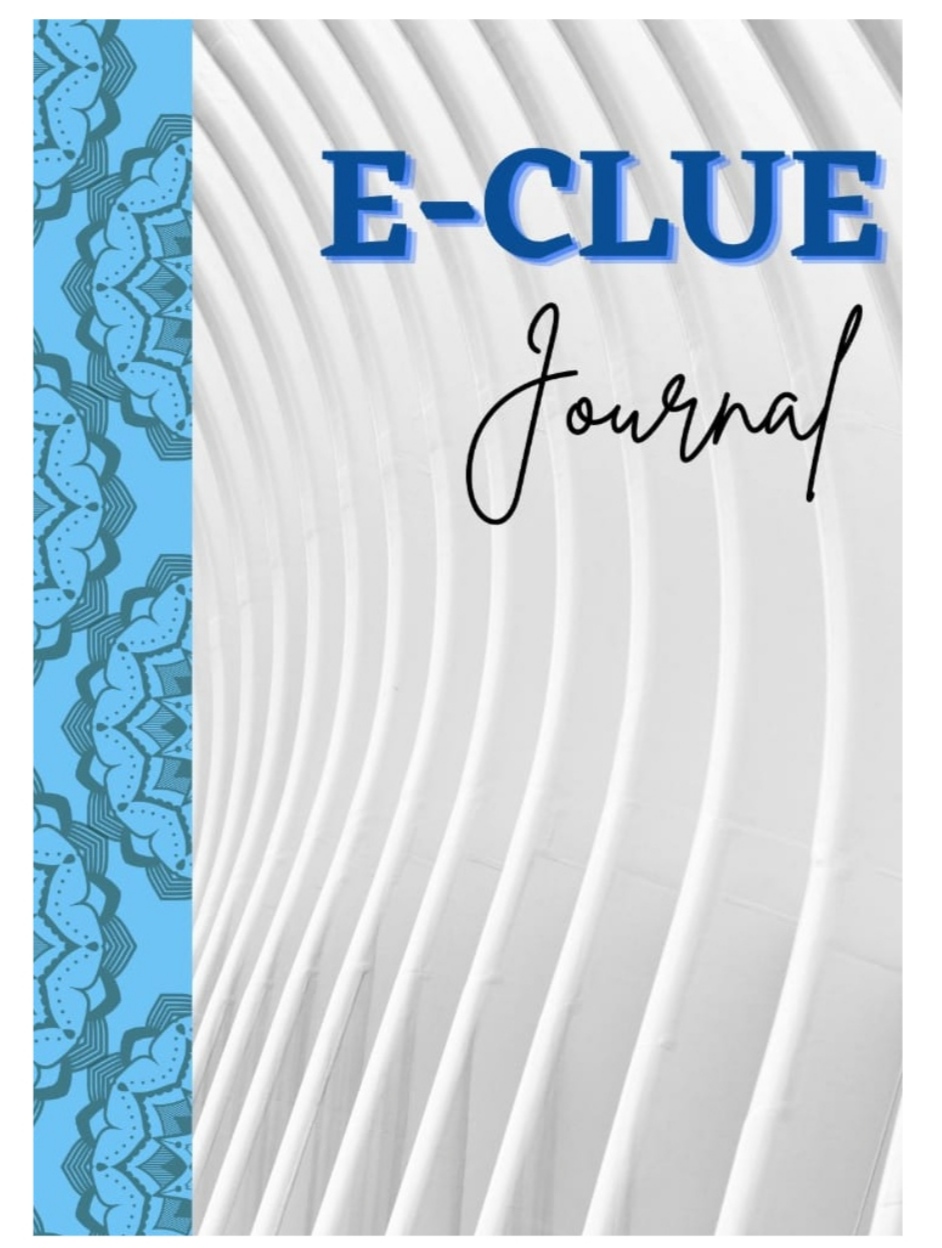THE SIGNIFICANCE OF THE MINOR CHARACTER IN ROWLING S HARRY POTTER AND THE ORDER OF THE PHOENIX
DOI:
https://doi.org/10.53682/eclue.v10i1.4581Keywords:
Character, Analysis, Novel, Harry Potter, Luna LovegoodAbstract
Literary works is a form of someone s creation that has meaning or has a purpose by the author Literary as a result of human creation will never be separated from language which is the main medium in literary works This research aims to analyze the minor character Luna Lovegood using qualitative research method based on the theory of Robert Stanton Stanton said that there are four ways to analyze a character: character s words character s behavior conversations between character and character s action The writer uses an intrinsic approach to analyze the character of Luna Lovegood The data taken from the novel by J K Rowling Harry Potter and the Order of the Phoenix After conducting research on the novel Harry Potter and the Order of the Phoenix the findings obtained by the writer regarding the character of Luna Lovegood are Luna has characters such as appreciation of beauty and excellence which is obtained based on character s words Kindness obtained based on character s behavior Bravery curiosity and humility obtained based on the conversations between character And kindness bravery too also found based on character s action< p>
References
Creswell J W 2013 Research Design Thousand Oaks California: SAGE Publications
Dengah O Maru M G Lolowang I 2021 Opposing Views In Webber s Jesus Christ Superstar: A Deconstruction Analysis Journal of English Language and Literature Teaching 4 2
Ibrahim M T Wuntu C N Lolowang I 2021 Struggle As Seen in Cassandra Clare s The Mortal Instruments: City of Bones SoCul: International Journal of Research in Social Cultural Issues 1 2 113 125
Kenney William 1966 How To Fiction New York Simon and Schcter Inc
Kessek J M Maru M G Lolowang I 2021 Disloyalty Of A Wife In Hawthorne s The Scarlet Letter KOMPETENSI: Jurnal Bahasa dan Seni 1 04 431 438
Keles K Wuntu C N Lolowang I 2022 A Family Portrait In Nicholas Sparks novel The Last Song JoTELL: Journal of Teaching English Linguistics and Literature 1 3 360 374
Komenaung G V Liando N V F Lolowang I 2021 Conflict in The Da Vinci Code by Dan Brown Journal of English Language and Literature Teaching unima ac id
Lolowang I S 2010 Women as Sexual Objects in American Print Advertisements: An Article E CLUE 949
Lontaan P K Mamentu A C Sabudu D 2022 The Detective Formula in Agatha Christie S Sleeping Murder: Miss Marple in the Last Case JoTELL: Journal of Teaching English Linguistics and Literature 1 3 331 349
Maleong L J 2010 Metodologi Penelitian Kualitatuf Bandung; Remaja Rosda Karya
Maukar M 2009 The Escapism From Reality in Fantasy Genre as Reflected in the Work Of C S Lewis The Chronicles of Narnia JELLT
Mogea T 2019 The Effectiveness of Question and Answer Technique in Teaching Reading Comprehension at SMP Negeri 3 Ratahan Journal of Educational Method and Technology Volume 2
Onthoni U Rorintulus O Lolowang I 2022 Anxiety In John Green s The Fault In Our Stars JoTELL: Journal of Teaching English Linguistics and Literature 1 3 316 330
Potu M F Andries F A Lolowang I 2021 Utopianism In Wilde s The Happy Prince SoCul: International Journal of Research in Social Cultural Issues 1 4 13 13
Rowling J K 2003 Harry Potter and The Order of the Phoenix UK: Bloomsbury
Stanton Roberts 1965 An Introduction to Fiction New York: Holt Rinehart and Winston Inc New York Chicago San Francisco Toronto London
Talumepa Z Rorintulus O Lolowang I 2022 The Bravery In Nicola Yoon s Everything Everything JoTELL: Journal of Teaching English Linguistics and Literature 1 7 865 878






